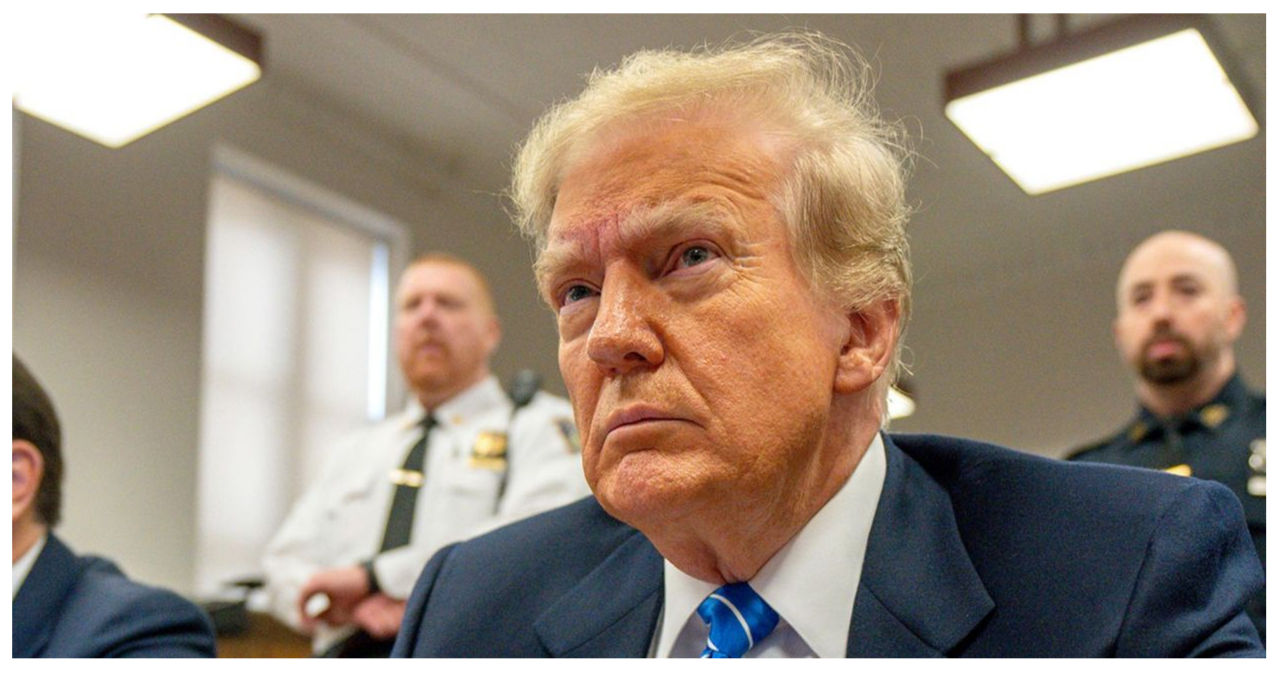Former President Donald Trump is often accompanied by elected officials as he attends his criminal trial in New York. These officials choose to spend their time sitting in the courtroom alongside him.
Sitting prominently in the first two rows of the court, on Trump’s side, is a section exclusively reserved for his team. However, on the prosecution’s side, an empty seat can often be found in the same section. This seat is specifically reserved for Alvin Bragg, the Manhattan district attorney, who has mostly chosen to focus on other work during the trial.
Bragg has been present for some parts of the proceedings, mainly when his own staff, including young paralegals, are summoned to testify as custodial witnesses and face intense questioning from the defense.
According to Domenic Trunfio, a Syracuse University law professor, Bragg is taking the correct approach.
Trunfio oversaw the daily operations of the Onandaga County district attorney’s office in Syracuse for almost twenty years. His jurisdiction covered approximately half a million people, which is one-third the size of Manhattan. He emphasized the significance of Bragg’s presence and involvement with his staff.
Trunfio emphasized the importance of showing support to individuals testifying in a case against a former president of the United States. He explained that displaying support sends a message of solidarity and reassurance, letting them know that they are not alone in their endeavors.
During the questioning, paralegal Georgia Longstreet found herself facing a challenge from Trump attorney Todd Blanche. He wanted to know if she had personal knowledge about how X (formerly Twitter) or Trump’s Truth Social network added timestamps to social media posts. Additionally, Blanche questioned whether she could definitively identify the target of Trump’s statement, “If you go after me, I’m coming after you!”
Longstreet, sitting about 10 feet away from Trump, stated, “I have my assumptions, but no.”
He observed as another attorney representing Trump, Emil Bove, inquired if the task of creating phone call log charts was laborious for the paralegal, Jaden Jarmel-Schneider.
“In all honesty, I actually quite enjoyed it,” Jarmel-Schneider exclaimed, eliciting laughter from those present in the courtroom.
“I hear you. I have a lot of respect for that,” Bove replied.
Bragg, on the other hand, chose not to provide any comments for this story, as stated by their spokesperson.
Trump has pleaded not guilty in the case, where he is facing 34 felony charges for falsifying business records. These documents were allegedly used to conceal payments made in 2016 to adult film star Stormy Daniels as hush money. The purpose of these payments was to prevent Daniels from publicly discussing a sexual encounter that Trump denies.
According to Diana Florence, who worked for Bragg’s two predecessors, it is extremely rare for a Manhattan D.A. to attend even one-third of the trial’s 18 days. However, Bragg has managed to attend parts of about one-third of the trial, which is quite remarkable.
Throughout my extensive 25-year career, which involved handling numerous high-profile cases, I had the privilege of having the District Attorney attend my summations on a few occasions, as well as my opening statements. However, it was not a common occurrence for them to be present during these crucial moments in court.
According to Florence, district attorneys are often occupied with various responsibilities that prevent them from attending trials. These include tasks such as advocating for legislation related to law enforcement, overseeing their office’s operations, and examining significant cases that are presented before grand juries.
In the past month, Bragg has been actively involved in various initiatives. Notably, he played a pivotal role in advocating for an amendment to New York’s hate crimes legislation, which was successfully included in the state’s fiscal year 2025 budget. Additionally, he took the initiative to address concerns regarding YouTube’s algorithm, urging them to make modifications to prevent the recommendation of videos to children that provide instructions on creating ghost guns and 3D-printed guns. Furthermore, he actively supported a bill aimed at facilitating the introduction of evidence in sex crimes cases, specifically focusing on defendants’ previous “bad acts.”
The bill was inspired by a decision made by the New York Court of Appeals on April 25. The decision overturned the rape conviction of former Hollywood mogul Harvey Weinstein.
The office has also made significant announcements regarding major indictments. These include cases connected to the murder of a man who was pushed in front of a subway, sex trafficking, a large-scale retail theft ring, and a notorious landlord who has been accused of harassing his tenants.
According to Florence and Trunfio, in high-profile cases like the Weinstein case and the Trump case, the prosecutors require the approval of the District Attorney. After all, it is the District Attorney’s name that appears on the indictment.
Trunfio emphasized that this is the most significant criminal case witnessed in a century, making it the proverbial elephant in the room.



